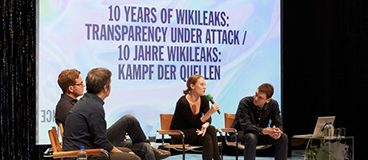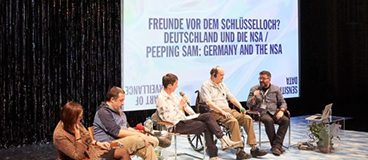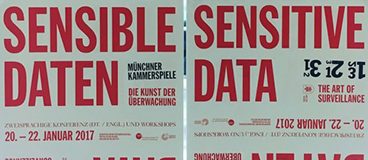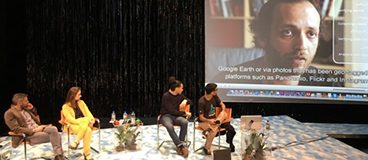Sensitive Data - The Art of Surveillance
Symposium
January 20-22, 2017
Venue: Münchner Kammerspiele
Since Edward Snowden blew the whistle that awakened the world to the magnitude of surveillance, has anything changed? Most people surf the web without protecting their profiles and do not have time to read through reams of terms and conditions before passing on their data to third parties. And in the hubbub of Internet traffic, intelligence agencies run the risk of missing the whisperings of real bombmakers. Much has stayed the same. Bestsellers advise people to be cautious in the digital world; the Black Lives Matter movement uses CCTV cameras as a defence against police violence; and in India, the government has resisted a social network. In Germany, in the meantime, a discussion has sprung up about the role of the secret service. And in the wake of the US presidential election, there has been a wide-ranging debate over the role of leaked emails. In the swirling vortex of the present, this international conference, curated by Tobi Müller and Sarah Harrison (Wikileaks), sheds light on the history of privacy and public life. Before complaining about those who strip off on the Internet, the desire of being seen should not be repressed. Because one thing is certain: Someone is always watching us. Perhaps it’s you?Sensitive Data - The Art of Surveillance is part of Sensitive Data, a long-term international project by the Goethe-Institut in cooperation with Germany’s Federal Agency for Civic Education, Münchner Kammerspiele, and Bard College.











